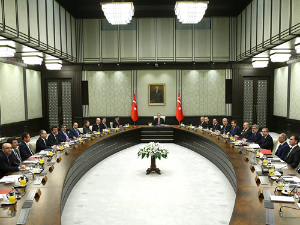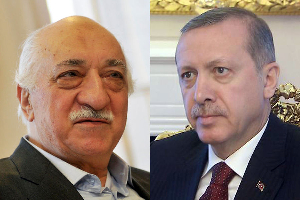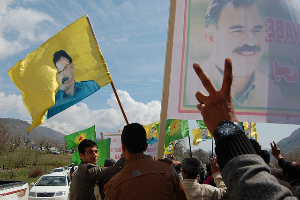What the Columnists Say
On the 8th anniversary of the assassination of Armenian-Turkish editor Hrant Dink, Rober Koptaş in Agos noted that the AKP government has recently started to emphasize that police officers close to the Gülenist fraternity were implicated in the 2007 assassination. Aydın Engin in Cumhuriyet called on the opponents of the AKP regime not to put any faith in dissensions within the governing party leading to the fall of the regime. Kadri Gürsel in Milliyet similarly wrote that Prime Minister Ahmet Davutoğlu is never going to put up a fight against President Recep Tayyip Erdoğan.

The Long Road that Led to the AKP’s “New Turkey”
By Fatih Yaslı (vol. 28, no. 1 of the Turkey Analyst)
The regime that the AKP is constructing certainly deserves to be defined as “new.” However, a proper understanding of the rise of the Islamists requires that their ascent is put in the right historical context, and that the true nature of the old Turkish regime is appreciated. Turkey’s Islamization has a long prehistory. It has been a long time since the radicalism of Kemalism was discarded. Instead, religion and conservatism have been consistently promoted in the name of anti-socialism.

Narrative Veils: Erdogan, the AKP and the Gulenist Arrests
By Gareth Jenkins (vol. 7, no. 23 of the Turkey Analyst)
On December 14, 2014, the Turkish police staged early morning raids in 13 provinces across the country following the issuing of arrest warrants for 31 alleged members of the Gülen Movement on terrorism charges. Those detained included six journalists, prompting claims in the national and international media that the arrests were another example of President Recep Tayyip Erdoğan’s increasing suppression of freedom of expression. In fact, the narratives of the AKP and the Gülen Movement about the arrests are both attempts to coat a power struggle with the gloss of a commitment to principle.

What the Columnists Say
The detentions of Gülenist media personalities have led to a discussion whether or not they deserve support in the name of the freedom of expression, against the background of the joint Gülenist-AKP assaults against the opposition and media in the past. Ekrem Dumanlı, the editor in chief of the Gülenist daily Zaman, who was one of those who was detained, defends past editorial policy, writing that “We honestly appropriated the Ergenekon investigation and lent whatever earnest support to it that we could,” because, he claims, there were many known examples of journalists collaborating with coup makers. Dumanlı concedes that some things that were published may have been “over the mark,” but he asks critical colleagues to support him nonetheless and not “make the same mistake against us.” Güray Öz in Cumhuriyet writes that “no journalist can be deprived of support because of what he has done in the past,” but that the assault against it today does not absolve Gülenist media from its responsibilities for what it has committed in the past.

The Kurdish Nationalist Movement and the Dialogue with Öcalan
By Gareth Jenkins (vol. 7, no. 22 of the Turkey Analyst)
On November 29, 2014, Abdullah Öcalan, the imprisoned founder of the Kurdistan Workers’ Party (PKK) told a visiting delegation from the pro-Kurdish Peoples’ Democratic Party (HDP) that the Kurdish issue could be resolved – and the PKK’s 30 year-old insurgency ended – within four to five months provided that the ruling Justice and Development Party (AKP) took the appropriate measures. In reality, not only is there little prospect of breakthrough but frustration at the lack of progress has begun to highlight the struggle for relevance between different elements within the Kurdish nationalist movement.








